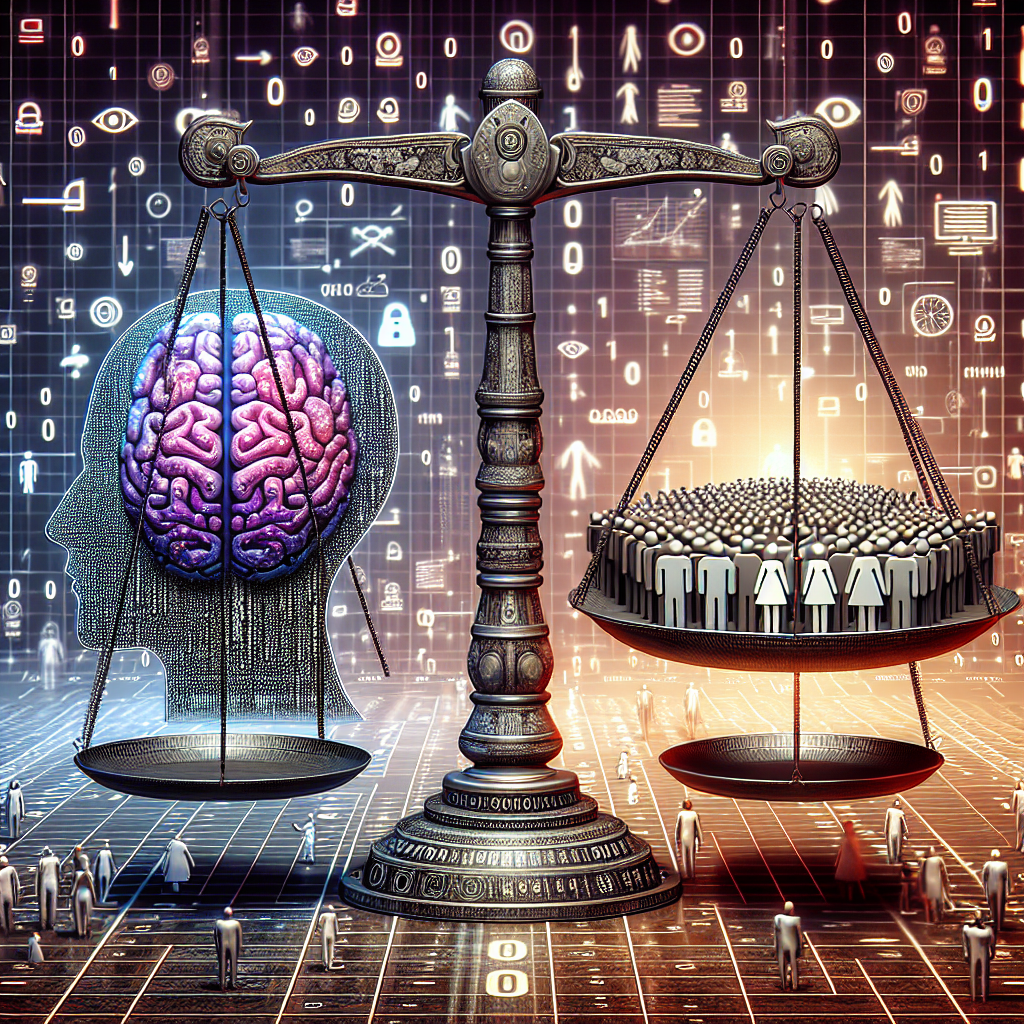The Ethical Implications of AI in Social Media
In today’s digital age, social media has become an integral part of our daily lives. We use platforms like Facebook, Twitter, Instagram, and TikTok to connect with friends and family, share updates about our lives, and consume content from around the world. However, the rise of artificial intelligence (AI) in social media has raised important ethical questions about privacy, data security, algorithmic bias, and the impact of AI on society.
AI in social media refers to the use of machine learning algorithms to analyze user data, predict user behavior, and personalize content. These algorithms can help social media platforms recommend friends, suggest posts, filter content, and target advertisements. While AI has the potential to enhance user experience and make social media more efficient, it also raises concerns about ethics and accountability.
One of the main ethical implications of AI in social media is privacy. Social media platforms collect vast amounts of data about their users, including their browsing history, likes, comments, and interactions. This data can be used to train AI algorithms to predict user preferences and behavior. However, the use of AI in social media raises concerns about how this data is stored, processed, and shared. Users may not be aware of how their data is being used, and they may not have control over how their data is shared with third parties.
Another ethical concern is algorithmic bias. AI algorithms are trained on historical data, which may contain biases and prejudices. This can lead to discriminatory outcomes, such as showing certain groups of people more or less content, or targeting certain groups with specific advertisements. Algorithmic bias can reinforce existing inequalities and stereotypes, leading to social harm and discrimination.
Furthermore, the use of AI in social media can have negative effects on mental health and well-being. AI algorithms are designed to maximize user engagement and retention, which can lead to addictive behaviors and filter bubbles. Users may be exposed to harmful content, misinformation, and extremist views, which can polarize society and undermine democratic values. The constant pressure to curate a perfect online persona can also lead to feelings of inadequacy, anxiety, and depression.
In addition, the use of AI in social media raises questions about accountability and transparency. AI algorithms are often opaque and complex, making it difficult to understand how they work and why they make certain recommendations. This lack of transparency can erode trust in social media platforms and undermine user confidence. Moreover, the use of AI in social media can shift power dynamics, as algorithms may prioritize the interests of the platform over the interests of users.
To address these ethical implications, social media platforms must adopt ethical guidelines and principles for the use of AI. They should prioritize user privacy, data security, and transparency in their AI systems. Platforms should also conduct regular audits and assessments of their AI algorithms to detect and mitigate bias. Furthermore, they should empower users with greater control over their data and settings, so they can make informed choices about their online experience.
Frequently Asked Questions (FAQs)
Q: How does AI impact privacy in social media?
A: AI in social media can pose risks to user privacy, as platforms collect and analyze vast amounts of user data to train their algorithms. Users may not be aware of how their data is being used, and they may not have control over how their data is shared with third parties.
Q: What is algorithmic bias, and how does it affect social media?
A: Algorithmic bias refers to the prejudices and biases that can be embedded in AI algorithms, leading to discriminatory outcomes. In social media, algorithmic bias can reinforce existing inequalities and stereotypes, leading to social harm and discrimination.
Q: How does AI impact mental health and well-being in social media?
A: AI algorithms in social media are designed to maximize user engagement and retention, which can lead to addictive behaviors and filter bubbles. Users may be exposed to harmful content, misinformation, and extremist views, which can polarize society and undermine democratic values.
Q: How can social media platforms address the ethical implications of AI?
A: Social media platforms should adopt ethical guidelines and principles for the use of AI, prioritizing user privacy, data security, and transparency. They should conduct regular audits and assessments of their AI algorithms to detect and mitigate bias, and empower users with greater control over their data and settings.

